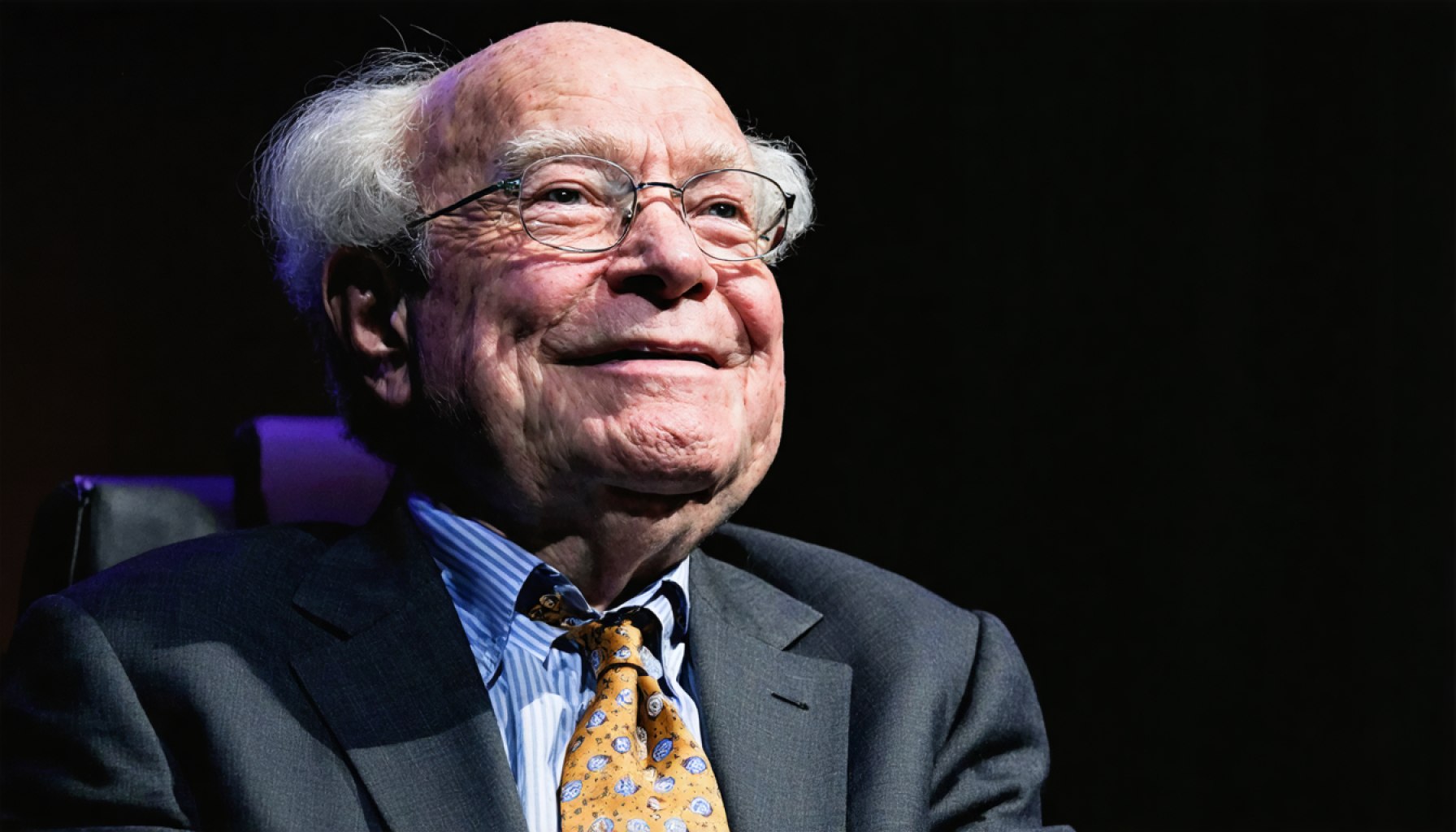- Berkshire Hathaway, under Warren Buffett, achieved a 17.3% gain in Q1 2023, defying a 4.6% decline in the S&P 500.
- Buffett avoided share buybacks, prioritizing strategic cash conservation, building a $334 billion reserve for future acquisitions.
- Buffett’s approach focuses on acquiring tangible assets, guided by a philosophy valuing substance over mere cash holdings.
- Market volatility, influenced by tariff tensions, presents potential opportunities for Berkshire to acquire undervalued assets.
- Berkshire’s price-to-book ratio remains high at 1.8, suggesting a premium valuation despite a historical preference for buybacks below 1.2.
- Berkshire Hathaway exemplifies resilience and strategic investing, positioned as a stable option amidst market unpredictability.
Berkshire Hathaway, the sprawling conglomerate helmed by the legendary Warren Buffett, has never been just a company. To many, it symbolizes the very essence of strategic investing. While conventional wisdom suggests that such a bastion of financial stability moves with the stock market’s ebb and flow, mid-2023 told a different story.
In a year fraught with market unpredictability, Berkshire Hathaway broke away from its typical trajectory, recording a staggering 17.3% gain in the first quarter alone. The broader market, captured by the S&P 500, faced a daunting 4.6% decline. It’s as if Berkshire rode a different current, one charted perhaps by Buffett’s shrewd navigation of stormy seas.
Buffett, a sage investor with a long-game mentality, finds value in times others see turmoil. Despite the impressive gains, he surprisingly didn’t initiate share buybacks in the preceding quarter. This restraint speaks to a deeper strategy, one rooted in cash conservation. Berkshire now sits on a robust cash cushion, with $334 billion awaiting deployment towards lucrative acquisitions when the market tilts in favor.
The allure of this prudent strategy lies in Buffett’s philosophy: a preference for tangible assets over cash piles. “Berkshire will always seek substance over safety nets,” Buffett’s annual letter declared—a sentiment that resonates as a beacon for investors who trust the Oracle of Omaha’s unparalleled insight.
As market fluctuations create ripples of uncertainty, Buffett’s approach stands as a testament to patient capital allocation. The market correction, influenced by tariff tensions, presented an inviting horizon for Berkshire to potentially snap up undervalued assets. This foresight signals not just a defensive maneuver but also an offensive thrust designed to capitalize on fleeting opportunities.
For would-be investors, the perennial dilemma looms: Is Berkshire a buy? The current price-to-book ratio hints at a premium valuation, hovering near a decade high of 1.8. Historically, Buffett favored buybacks when valuations dipped below 1.2, marking today’s metrics as relatively uneconomical by his standards. Yet, incremental investments—dipping a toe now, awaiting potential dips later—might just align with strategic foresight.
For all who watch the market’s theatrical dance, Berkshire Hathaway offers more than just financial returns; it proposes a masterclass in resilience and strategy. Through Buffett’s vision, it remains a beacon of stability, even as the financial world sways unpredictably.
Berkshire Hathaway’s Stunning Q1 Performance: What You Need to Know Now
Deep Dive into Berkshire Hathaway’s Strategy and Performance
1. The Unconventional Triumph of Q1 2023
Berkshire Hathaway’s remarkable 17.3% gain in the first quarter of 2023 against the S&P 500’s 4.6% decline underscores Warren Buffett’s adept investment strategy. This deviation attests to Buffett’s ability to navigate financial storms, identifying value where others see chaos.
2. Buffett’s Strategic Restraint and Cash Reserves
Rather than opting for aggressive share buybacks, Buffett has chosen a path of cash conservation, amassing a $334 billion war chest poised for strategic acquisitions. This tact reflects Buffett’s preference for tangible assets and signifies readiness to capitalize on market corrections.
Key Features and Philosophy
3. Long-Game Mentality
Buffett’s investment philosophy centers on the belief that patience and strategic timing are crucial, making calculated moves when market conditions align. This approach has repeatedly shielded Berkshire from volatility, ensuring long-term stability.
4. Value Investing Principles
Berkshire’s strategy emphasizes investing in undervalued assets rather than speculative growth stocks. This conservative approach attracts investors seeking steady returns rather than volatile gains.
Pros and Cons of Investing in Berkshire Hathaway
Pros:
– Resilience: Strong performance in adverse market conditions.
– Experienced Leadership: Warren Buffett’s legendary investment track record.
– Solid Cash Position: Enables strategic acquisitions and investments.
Cons:
– Premium Valuation: Current price-to-book ratio near a decade high.
– Limited Share Buybacks: Potentially reduces immediate returns.
Industry Trends and Predictions
5. Market Forecast
As economic uncertainties linger, Berkshire Hathaway is well-positioned to take advantage of market dips, acquiring undervalued assets at favorable prices. This prepares the conglomerate for potential growth as markets stabilize.
6. Strategic Acquisitions
The focus is expected to remain on sectors with tangible asset potential—namely, energy, transportation, and consumer goods—which align with Buffett’s investment tenets.
FAQs and Practical Tips
Should You Invest in Berkshire Hathaway Now?
Given the high valuation, potential investors might consider a phased approach: investing incrementally while monitoring market conditions for a more favorable entry point.
How Does Buffett’s Cash Reserve Impact Strategy?
With substantial cash reserves, Berkshire is shielded against downturns and ready to snap up opportunities in distressed markets, potentially boosting returns in the long run.
Actionable Recommendations:
– Diversify Investments: Don’t put all your eggs in one basket, even if it’s Berkshire Hathaway.
– Monitor Valuations: Look for potential dips in the price-to-book ratio for better entry points.
– Stay Informed: Keep up with Berkshire’s quarterly reports and Buffett’s annual letters.
For more insights on strategic investing and detailed company analysis, explore [Berkshire Hathaway](https://www.berkshirehathaway.com/).
